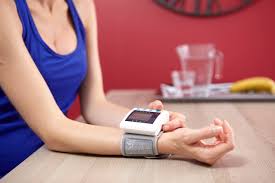Jun 10: Seventy per cent of digital blood pressure monitors used at homes are "unacceptably inaccurate", and could cause serious implications for people who rely on them, said researchers one of Indian-origin.
The study found that about 70 per cent of the time, these digital devices weren't accurate within five mmHg, when compared to the mercury reading of the sphygmomanometer (used by medical practitioners) leading to flaws in making informed health decisions.
The devices were off the mark by 10 mmHg about 30 per cent of the time.
The findings are extremely relevant given millions of patients are asked to monitor their blood pressure through a device at home and report the results back to their doctor, researchers said.
Further, the readings were more inaccurate in men than in women. According to researchers, there are many factors that could account for their findings.
"Arm shape, arm size, the stiffness and age of blood vessels, and the type of blood pressure cuff are not always taken into account when a blood pressure machine is designed and validated," said Raj Padwal, a professor at University of Alberta, Canada.
"Individual differences, such as the size, age and medical background of the person using the blood pressure monitor are also contributing factors," Padwal added.
For the study, published in the American Journal of Hypertension, the team tested 85 patients with home monitors. They noted that steps can be taken to minimise inaccurate readings.
Patients should not start or change drugs based on one or two measurements taken at a single point in time unless the measurements are clearly elevated.
Patients should also compare the blood pressure machine measurement with a blood pressure measurement in clinic before exclusively relying upon home blood pressure readings.
What's really important is to do several blood pressure measurements and base treatment decisions on multiple readings, the researchers advised.
"High blood pressure is the number one cause of death and disability in the world," said lead researcher Jennifer Ringrose, from the University of Alberta.
"Monitoring for and treating hypertension can decrease the consequences of this disease. We need to make sure that home blood pressure readings are accurate," she added.





Comments
Add new comment